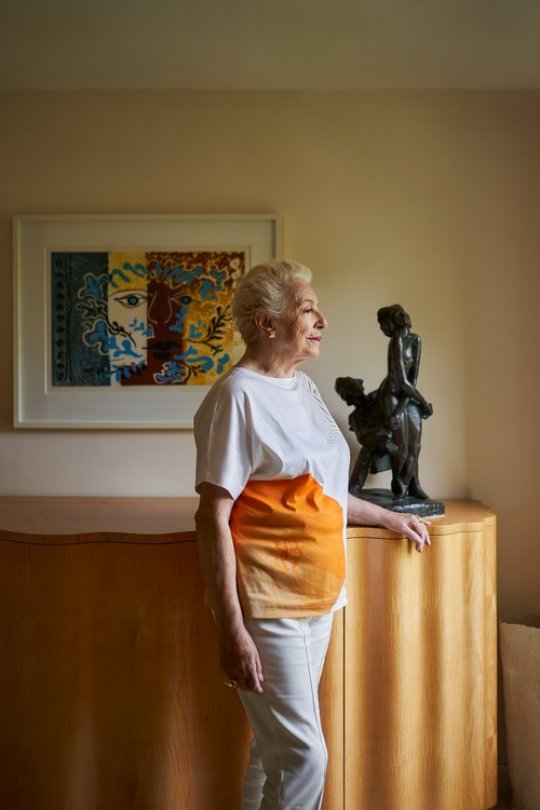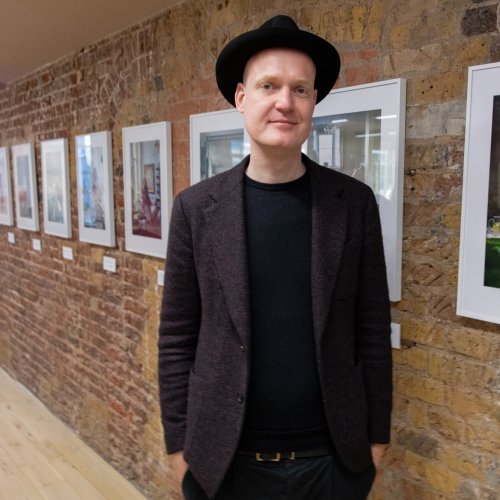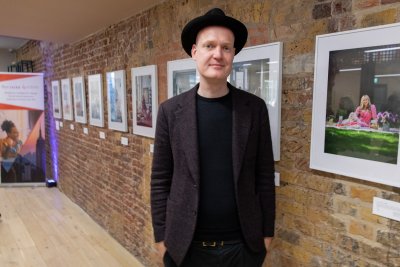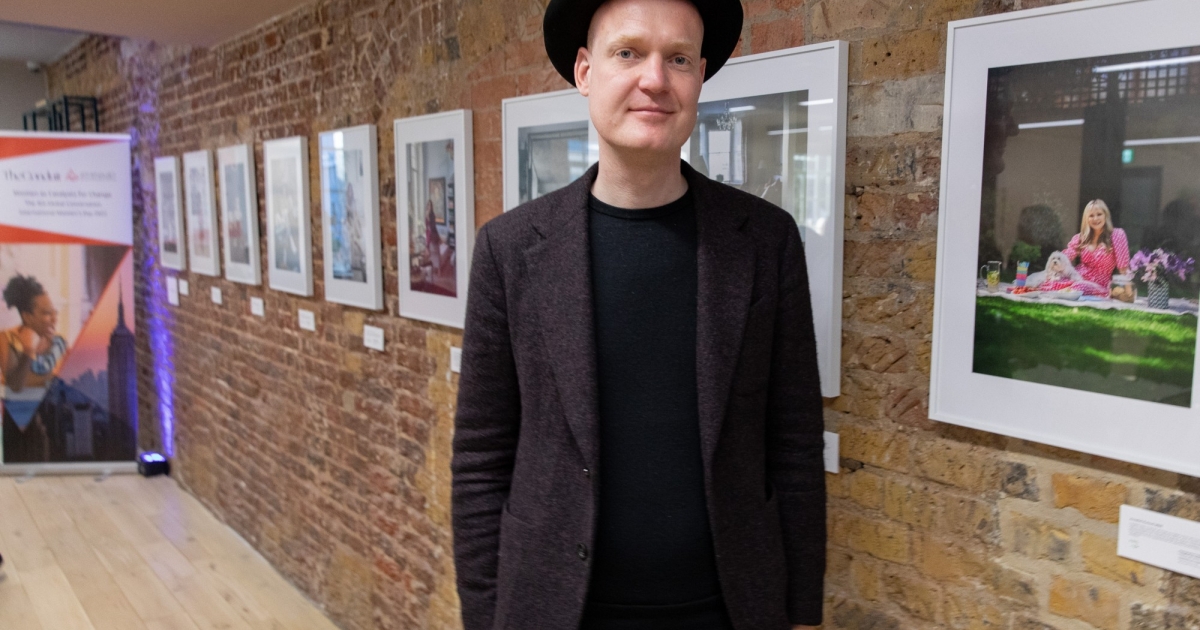‘I Am, You Are: A Pebble’
‘I Am, You Are: A Pebble’ is a project by international photographer, Sebastian Böttcher. Inspired by the book ‘From Women to the World – Letters for a New Century’ by Elizabeth Filippouli, this collaborative project brings to life the extraordinary stories of visionary women from around the world. It portrays women from more than 20 countries, creating a metaphorical dialogue and a space for us all to celebrate women’s diversity, values and compassionate leadership style. The first part of the project was presented at The Conduit in March 2022 and the complete project will be presented in 2023.
Not only do all the women in the book have this very spirit in common, but their agenda also revolves around issues of feminism and empowerment which to me are matters I feel the responsibility to support.
Has the book changed your own thinking around women?
I don’t think that the book necessarily changed my thinking. My previous work focusing on women within the Middle Eastern diaspora already gave me some sensitivity towards gender related injustice and topics related to empowerment and feminism. But I believe it influenced my photography. For every portrait session it is essential to me to have a good background knowledge about the person I’m going to meet. It gives me the security to direct a conversation and build up a connection quickly. Often the information I receive beforehand is incredibly intimate and moving, perhaps even challenging. It puts me outside of my comfort zone and forces me to engage on a more emotional level. This definitely alters the way I approach the women during the shoot and also subconsciously affects the image selection process after.
For the purposes of this project you are using two cameras: a digital and an analogue. Can you explain the difference between working with a digital camera and an analog camera, in terms of approach and result?
An analog camera achieves something almost magical. It creates a film negative which physically connects to the world in front of the lens. An object materialising in an instant in time just by using light. This property will always fascinate me, it makes the moment more tangible but doesn’t necessarily add to the story which is told through the actual image content itself. I believe that portraiture photography reflects the connection between the sitter and the photographer. The camera just captures this relationship unfiltered. My aim is to put the person I work with at ease in the hope to gain authenticity. Analogue photography interferes a lot with this intent. The camera demands so much more attention, it has to be set by hand, films need to be reloaded. A modern digital camera instead is far less intrusive. It requires a minimum of control, is more forgiving in difficult light situations and even operates in complete silence. These technical aspects help me to engage more with the human in front of me and ultimately create purer narratives.
What is it that you have learned by working with women from different cultures?
Meeting women from different cultures certainly raised my awareness about gender related injustice such as unequal opportunities. It also taught me that such issues can’t be solved without considering the inherent cultural backgrounds of each society. Therefore both the measures to address and the actual goals for change can look very different.

Without naming a specific woman, can you share with us one or two stories or anecdotes that have particularly stayed with you, in the process of capturing the narrative around the person?
There always is something awkward and challenging in meeting a complete stranger in a very personal environment. It takes trust and openness from both sides to break through this feeling. Sometimes almost like turning a switch a connection emerges which feels more like meeting a close friend you can share secrets with. I find these moments very precious, and they are the ones which usually stay with me.
What are some of the social and cultural differences that you have observed in the different countries you have worked in?
Having mainly worked in the US, Europe, the MENA region and parts of China, my commissions usually put me in social bubbles meeting very privileged people with good education and similar values. I find it difficult to truly judge social and cultural differences in such environments and would rather like to emphasise similarities I encounter. I can say that no matter where I’ve been in the world, I always met women and men with strong social impact driven agendas who were extremely passionate and ambitious in their actions.
The ‘I am, You are: A Pebble’ project connects to the sustainable development goals. Do you think that women as leaders, operate in more ethical and values driven ways than men?
I am lacking the insight into decision making within power structures. I like to believe though that both men and women are equally capable of grounding their actions in strong convictions as well as in abandoning their beliefs altogether. But ethical orientation systems are not necessarily universal and can be strongly gender biased. To me the question is rather whether the set of values and their underlying ethics differ between female and male decision makers.
When are the first presentations of this exhibition (‘I am You are: A Pebble’) being planned for? And what are the plans?
The whole project is evolving as we go. I see my role more in coordinating and handling the actual portrait shoots and preparing the content for its intended purpose. I guess this is what I am good at. I totally stand behind the ideas and goals of this collaboration with Elizabeth Filippouli but I am not an activist myself, it is Elizabeth who bring the activist’s energy and drive. To an extent, presenting the work is of lesser importance to me than creating it in the first place. The beauty lays in the joint effort and working with someone who thinks big and has a clear vision about the potential of this adventure.

Sebastian Böttcher
Photographer
Born and raised in Germany, Sebastian is a London-based photographer specializing in portraiture, reportage, and interiors. He gets fascinated by interesting people and through his lens he finds ways to convey the visual part of their rich and versatile narratives. Zaha Hadid, Nobu Matsuhisa and HRH Princess Lamia al Saud are among the personalities that Sebastian has worked with. His projects take him a lot to the Middle East and internationally, while his work has been featured in Vogue, Harper’s Bazaar, Tatler, Financial Times or House & Garden. He is keen to capture stories related to feminism, empowerment and through his photographic work to convey narratives of inspiration and positive social impact.
Published: 05/05/2022



